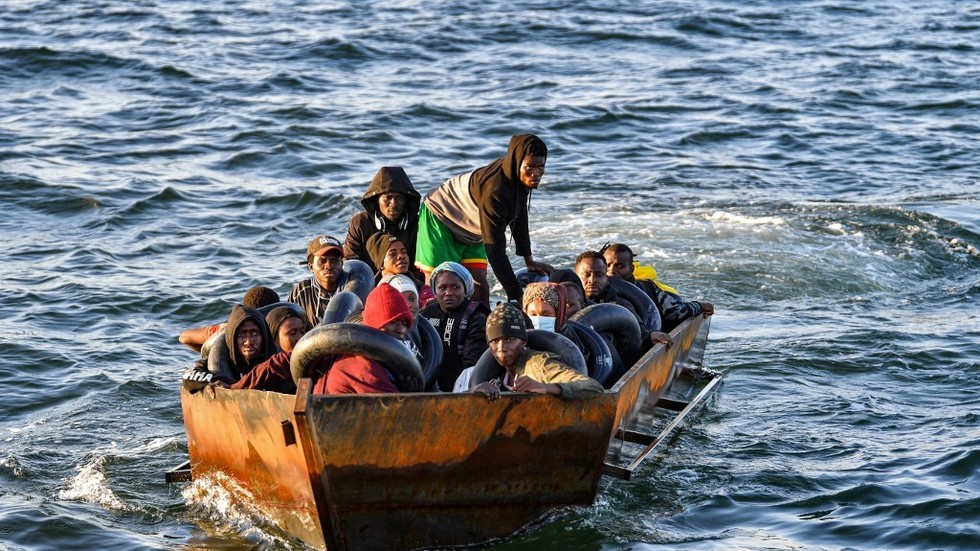
Crossings soared almost 300% in the first four months of 2023, the EU’s border agency has said

Migrants from sub-Saharan Africa sit in a makeshift boat off the coast of Tunisia, October 4, 2022 © AFP / Fethi Belaid
The number of illegal immigrants taking the central Mediterranean route into the EU rose to a record 42,165 in the first four months of this year, according to the bloc’s border security agency, Frontex. The agency blamed the rise on competition among human traffickers driving down the price of a crossing.
The figure of 42,165 represents a 300% increase on the same period in 2022, with more than half of all illegal immigrants entering the EU now taking the central Mediterranean route – an often perilous journey from Libya or Tunisia to Italy or Malta.
“I’ve never seen this before,” Frontex chief Hans Leijtens told France’s AFP news agency on Friday. “Especially from Tunisia, right now we see, compared with last year, it’s a 1,100 percent growth.”
Leijtens said that the rise has been fueled by increasingly organized human traffickers using makeshift metal boats that can be produced from just over $1,000 and assembled in a day on a Libyan beach. The lower price of the boats, coupled with competition among rival trafficking gangs, has driven down the cost of a trip.

Read more
“The lower prices mean they need to have larger volumes. So there’s a reason for them to push more,” he added. “So that may also be an explanation for the numbers right now.”
During the height of the migrant crisis in 2015, most of those traveling to the EU came from Syria and the Middle East. In 2023, the top five countries of origin are the Ivory Coast, Guinea, Egypt, unknown nations, and Pakistan. There are currently no armed conflicts in any of these countries.
While human rights groups have accused Frontex of illegally pushing back migrant boats, Leijtens denied the claims, saying that his agency sometimes allows the Libyan Coast Guard to take these vessels back to shore, which is “something completely different.”
A number of EU countries, including Austria and Greece, have demanded that the bloc do more to fortify its external borders against illegal entry, after last year saw the highest number of illegal immigration attempts since 2016. More than 80% of attempted entries were made by adult men.




